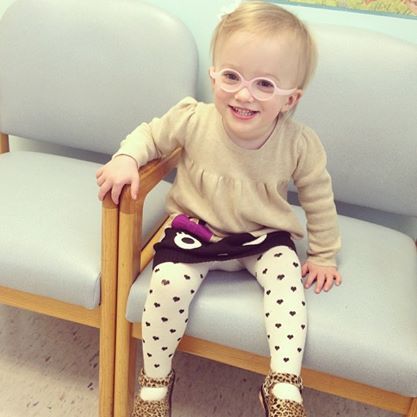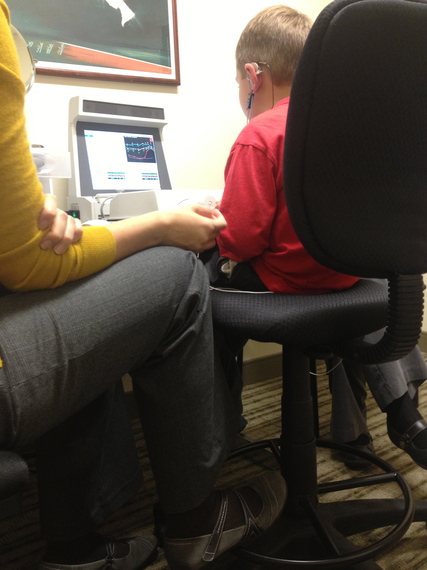I think I spent half of my late twenties in doctors' offices with both of my children.
With a micropreemie (Abby) and an immunosuppressed cancer fighter (Jackson), both of my children had a low tolerance for germs. It was very easy to pick up colds and viruses from a routine specialist checkup. Which meant another doctor visit. And then a follow up to that doctor's visit.
Needless to say, it's a little like Cheers when we visit the doctor. Everyone knows our name and enjoys our co-pays. I'm surprised we don't have our own parking spot.
Just as important as keeping up with Jackson and Abby's physical health is making sure they are happy. It doesn't take long for kids, especially those with chronic issues, to develop phobias to doctors, specific offices and treatments. From my years as a waiting-room hopper, I've learned how to make the best of doctor's visits for me and for the kids.
The next time you schedule an appointment, these tips will help:
1. Schedule appropriate appointment times. You know when your child eats, sleeps and gets grumpy. Schedule appointments when you know your child will have the best chance of being in a good mood. For us, that's usually in the morning around 9:30 or 10.
2. Stay calm. I know I've lucked out with having great patients for kids. But the way a parent reacts or overreacts will influence their children to do the same. Discomfort and pain is frightening for a child. If you freak out, it only makes it worse for them. It's not helpful to tell your child to yell, "Stop it!" or "That's enough!" if they're really frightened. I've watched other parents do this, and it's just painful to watch.
3. Remember all kids have bad days. I've had those days with Jackson and Abby. Try not to let the embarrassment of the moment override your focus. If you take the time to think about the humiliation, you'll lose the ability to figure out what to do. (Believe me!) Take a deep breath and continue comforting. No tantrum or fit lasts forever!
4. Wash, wash, wash your hands. Wash after you leave the waiting room, and then again after you leave the exam room. Hospitals and doctor's office are the easiest place to pick up colds or viruses. Try not to let your child eat off the counters or teeth on hospital equipment.
5. Talk them through the details. Kids understand more than you think so manage their expectations. If we're going to the audiologist, I tell Jackson: "We're going to visit Dr. So and So. She's going to take a look in your ears and play a couple games with you to see how you can hear." That way there's no confusion, he has an understanding of why we're going and it alleviates any fears about surprises.
6. Keep them distracted. We've all had those appointments that should take 45 minutes, and two hours later, you're just getting back to the exam room. This is when I find myself getting creative. I've used the exam table paper to trace our hands, draw our family or make airplanes. You know that glove box on the counter? They make awesome balloon hands. The longer the doctor takes, the more gloves we use. I think that's a fair trade, don't you? Tongue depressors also make for great rulers to measure things around the room.
7. Bring comfort items from home. It's better to start out prepared. Coloring books, crayons, stickers or regular books can help pass the time.
8. Keep moving if you have to. In the beginning, if an office was running late, I'd stay in the packed waiting room because I didn't know I had a choice. Now I know better than to confine my kids during long waits. Today, if one of them needs to keep moving, I just let the receptionist know we'll be walking in the hall. Or if we're back in the exam room, I leave the door open so we can peek around the corner. It makes the kids feel less confined and it also provides entertainment.
9. Reward good behavior. A trip to the dollar store, visit to the park or maybe an ice cream cone are great rewards for a good visit. Please don't punish your kid for a bad visit; instead, talk through what worried or upset them. Learn from it and move on together!
10. Bring reinforcements. Another set of hands can keep your child occupied while you talk to the doctor. Remember to bring any questions that need to be answered.

